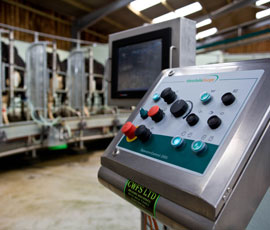Prepare for higher tax bills on lower capital allowances

Many farming businesses need to prepare for a hike in their tax bill from January 2013 or 2014 because plant and machinery investment is slowing and capital allowances are reducing.
Rob Hitch of Cumbria accountant Dodd & Co warns the 31 January tax payment deadline will see many having to find more cash than in recent years, both to pay tax due and for a higher payment on account for the current year.
Those claiming tax credits may be more severely affected. Where taxable profits rise by more than £10,000 for 2011/12 and £5,000 for the current year, tax credits are reassessed and repayments are likely to be demanded.
Reducing capital allowances were already having a big impact on some smaller businesses, said Mr Hitch.
“The reduction of Annual Investment Allowance to £25,000 this year will mean that many businesses find themselves in a similar position when working out their 2012/13 tax liability due for payment in January 2014. I would estimate that more than half of Dodd & Co’s farming clients will see increasing tax bills as a result.”
For many, capital allowances had reduced taxable income significantly as they had invested over the past few years, but that investment was slowing or coming to an end, said Mr Hitch.
“The sting in the tail of this spending spree while 100% allowances were available is about to be felt by many businesses, particularly small farming businesses.”
Many businesses which had invested in this way and paid little or no tax in recent years would face a tax bill in January 2013 and would also have to make a 50% payment on account for the next tax year.
This in itself would have a huge effect on cashflow, but there was also a danger that those claiming tax credits would have their payments for the 2011/12 tax year and for the current year reassessed.
“It is possible to make changes to avoid the worst of this situation, but not retrospectively. All businesses that expect much lower capital allowance claims, particularly in 2012/13, should review their expected level of taxable profits in order to quantify any increased exposure to tax and take action as a matter of urgency,” said Mr Hitch.
